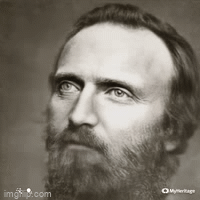THE ERA OF TRUMP
-
K@th
- Posts: 3513
- Joined: Wed Nov 30, 2016 8:39 am
-
Speaker to Animals

- Posts: 38685
- Joined: Wed Nov 30, 2016 5:59 pm
Re: THE ERA OF TRUMP
Well it is.
She should be removed from the bench.
She should be removed from the bench.
-
TheReal_ND

- Posts: 26048
- Joined: Wed Nov 30, 2016 6:23 pm
Re: THE ERA OF TRUMP
Bench activism is nothing new unfortunately.
-
K@th
- Posts: 3513
- Joined: Wed Nov 30, 2016 8:39 am
Re: THE ERA OF TRUMP
Wine colored horns.Speaker to Animals wrote:Well it is.
She should be removed from the bench.
I agree - that's egregious.
Account abandoned.
-
Montegriffo

- Posts: 18849
- Joined: Wed Nov 30, 2016 7:14 am
Re: THE ERA OF TRUMP
So now we're getting angry about woolly hats? I just don't understand America sometimes.
You should see the crazy wigs judges wear over here. I guess you'd get upset about transgender degenerates and call for them to be removed from the bench.


You should see the crazy wigs judges wear over here. I guess you'd get upset about transgender degenerates and call for them to be removed from the bench.
Death, death, to the IDF.


-
Xenophon

- Posts: 2713
- Joined: Wed Nov 30, 2016 6:41 am
Re: THE ERA OF TRUMP
It's not the hat, but the bias implied by the wearing of the hat.Montegriffo wrote:So now we're getting angry about woolly hats? I just don't understand America sometimes.
You should see the crazy wigs judges wear over here. I guess you'd get upset about transgender degenerates and call for them to be removed from the bench.
-
K@th
- Posts: 3513
- Joined: Wed Nov 30, 2016 8:39 am
Re: THE ERA OF TRUMP
The judicial branch is one of the three branches of our government and is supposed to be non-partisan and objective. If it is a pussy (it doesn't look like one,) she's showing her bias against Trump. This is a big no-no over here.Montegriffo wrote:So now we're getting angry about woolly hats? I just don't understand America sometimes.
Account abandoned.
-
Calculus Man

- Posts: 360
- Joined: Wed Nov 30, 2016 5:22 pm
Re: THE ERA OF TRUMP
They're not supposed to look like literal vaginas...they're supposed to look like the ears of a pussycat.
It sounds like that's what's confusing you--correct me if I'm wrong.
It sounds like that's what's confusing you--correct me if I'm wrong.
Don't neglect this Subtle Q...https://open.spotify.com/track/3A7dANGO ... 8uH471TDCw
-
jbird4049

- Posts: 1117
- Joined: Wed Nov 30, 2016 8:56 pm
Re: THE ERA OF TRUMP
No problem disagreeing with me. I've been wrong before. What torques me is the Socialism equals Fascism equals Nazism because the word socialism is something something. WTF? And going by some people's reasoning, the Iron Chancellor fricking Otto von Bismark was a Fascist/Socialist/Communist/NaziXenophon wrote:Because you people upset me because you're unwilling to look at actual facts, I'm going to do the legwork for you.jbird4049 wrote:So because the German Communist People, the German Socialists Party, and the Nazi Party were three different parties, and that the Communists, and the Nazis, worked against the Socialists who were immediately suppressed, and its leaders among the very first to be assassinated, or sent to concentration camps, immediately after the Nazis won the election, that means the Nazis were socialists!Okeefenokee wrote:
How could I have been so blind!
That must mean the Democratic People's Republic of Korea is a democracy!
From Wikipedia:
https://en.wikipedia.org/wiki/Economy_of_Nazi_Germany
Let's compare that with the Falangist Regime in Spain (also Fascist, for you no-research mouth breathers)The Nazis came to power in the midst of Great Depression. The unemployment rate at that point in time was close to 30%.[27] Hitler appointed Hjalmar Schacht, a former member of the German Democratic Party, as President of the Reichsbank in 1933 and Minister of Economics in 1934.[27] At first, Schacht continued the economic policies introduced by the government of Kurt von Schleicher in 1932 to combat the effects of the Great Depression. The inherited policies included a large public works programs supported by deficit spending – such as the construction of the Autobahn network – to stimulate the economy and reduce unemployment.[28]
Hitler also spent large amounts of state revenues for a comprehensive social welfare system to combat the ill effects of the Great Depression, promising repeatedly throughout his regime the “creation of a socially just state.”[29] In 1933, Hitler ordered the National Socialist People's Welfare (NSV) chairman Erich Hilgenfeldt to “see to the disbanding of all private welfare institutions,” in an effort to socially engineer society by selecting who was to receive social benefits.[30] Under this state-operated welfare structure, Nazi administrators were able to mount an effort towards the “cleansing of their cities of ‘asocials.’”[31] Nonetheless, the NSV instituted expansive programs to address the socio-economic inequalities among those deemed to be German citizens. Joseph Goebbels remarked about the merits of Hitler’s welfare state in a 1944 editorial “Our Socialism,” where he professed: “We and we alone [the Nazis] have the best social welfare measures. Everything is done for the nation.”[32]
With 17 million Germans receiving assistance under the auspices of National Socialist People’s Welfare (NSV) by 1939, the agency “projected a powerful image of caring and support.”[33] The National Socialists provided a plethora of social welfare programs under Nazi’s concept of Volksgemeinschaft which promoted the collectivity of a “people’s community” where citizens would sacrifice themselves for the greater good. The NSV operated “8,000 day-nurseries” by 1939, and funded holiday homes for mothers, distributed additional food for large families, and was involved with a “wide variety of other facilities.”[34]
From Wikipedia:
https://en.wikipedia.org/wiki/Economic_ ... 2C_1939-75
In conclusion, as others have already posted, Fascism takes many forms, and is characterized by it's emphasis on the State as the highest form of cultural expression. Fascism is not necessarily the opposite of communism. Nuance, people. Read a book.Spanish membership in these groups was not politically possible, but Spain was invited to join a number of other international institutions. In January 1958, Spain became an associate member of the Organisation for European Economic Co- operation (OEEC), which became the Organisation for Economic Co-operation and Development (OECD) in September 1961. In 1959 Spain joined the International Monetary Fund (IMF) and the World Bank. These bodies immediately became involved in helping Spain to abandon the autarkical trade practices that had brought its reserves to such low levels and that were isolating its economy from the rest of Europe.
In December 1958, after seven months of preparation and drafting, aided by IMF, Spain unveiled its Stabilization Plan on June 30, 1959. The plan's objectives were twofold: to take the necessary fiscal and monetary measures required to restrict demand and to contain inflation, while, at the same time, liberalizing foreign trade and encouraging foreign investment. The plan's initial effect was deflationary and recessionary, leading to a drop in real income and to a rise in unemployment during its first year. The resultant economic slump and reduced wages led approximately 500,000 Spanish workers to emigrate in search of better job opportunities in other West European countries. Nonetheless, its main goals were achieved. The plan enabled Spain to avert a possible suspension of payments abroad to foreign banks holding Spanish currency, and by the close of 1959 Spain's foreign exchange account showed a US$100-million surplus. Foreign capital investment grew sevenfold between 1958 and 1960, and the annual influx of tourists began to rise rapidly, bringing in very much needed foreign exchange along remittances from Spanish workers abroad.
As these developments steadily converted Spain's economic structure into one more closely resembling a free-market economy, the country entered the greatest cycle of industrialization and prosperity it had ever known. Foreign aid took the form of US$75 million in drawing rights from the IMF, US$100 million in OEEC credits, US$70 million in commercial credits from the Chase Manhattan Bank and the First National City Bank, US$30 million from the Export-Import Bank of the United States, and funds from United States aid programs. Total foreign backing amounted to US$420 million. The principal lubricants of the economic expansion, however, were the hard currency remittances of one million Spanish workers abroad, which are estimated to have offset 17.9% of the total trade deficit from 1962 to 1971; the gigantic increase in tourism that drew more than 20 million visitors per year by the end of the 1960s, accounting by then for 9% of GNP; a car industry that grew at a staggering compound rate of 21.7% per year from 1958 to 1972; and direct foreign investment, which between 1960 and 1974 amounted to an impressive US$7.6 billion. More than 40% of this investment came from the United States, almost 17% came from Switzerland, and the Federal Republic of Germany and France each accounted for slightly more than 10%. By 1975 foreign capital represented 12.4% of the total invested in Spain's 500 largest industrial firms. More important than the actual size of the foreign investment was the access it gave Spanish companies to up to date technology. An additional billion dollars came from foreign sources through a variety of loans and credit devices.
So what point are we arguing over?
State funded, or at least organized, healthcare, pensions, and other forms of welfare have be supported by empires, dictatorships, democracies, republics, fascists, communistic, capitalists, free marketeers, states large and small.
One can take anything so far. Any state, any institution, religion, or idea can misused. As that very cliched example of Jesus, and Christianity, which has been used to justify both the greatest good, and the greatest evil shows.
And because that is show, some have either damned Christianity, or supported it without thought. Or health insurance, or socialism, or for that matter democracy.
Also from Wikipedia,
In domestic policy Bismarck pursued a conservative state-building strategy designed to make ordinary Germans—not just his own Junker elite—more loyal to throne and empire, implementing the modern welfare state in Germany in the 1880s.[75] According to Kees van Kersbergen and Barbara Vis, his strategy was:
granting social rights to enhance the integration of a hierarchical society, to forge a bond between workers and the state so as to strengthen the latter, to maintain traditional relations of authority between social and status groups, and to provide a countervailing power against the modernist forces of liberalism and socialism.[76]
Bismarck worked closely with large industry and aimed to stimulate German economic growth by giving workers greater security.[77] A secondary concern was trumping the Socialists, who had no welfare proposals of their own and opposed Bismarck's. Bismarck especially listened to Hermann Wagener and Theodor Lohmann, advisers who persuaded him to give workers a corporate status in the legal and political structures of the new German state.[78] In March 1884, Bismarck declared:
“ The real grievance of the worker is the insecurity of his existence; he is not sure that he will always have work, he is not sure that he will always be healthy, and he foresees that he will one day be old and unfit to work. If he falls into poverty, even if only through a prolonged illness, he is then completely helpless, left to his own devices, and society does not currently recognize any real obligation towards him beyond the usual help for the poor, even if he has been working all the time ever so faithfully and diligently. The usual help for the poor, however, leaves a lot to be desired, especially in large cities, where it is very much worse than in the country.[79] ”
Bismarck's idea was to implement welfare programs that were acceptable to conservatives without any socialistic aspects. He was dubious about laws protecting workers at the workplace, such as safe working conditions, limitation of work hours, and the regulation of women's and child labor. He believed that such regulation would force workers and employers to reduce work and production and thus harm the economy. Bismarck opened debate on the subject in November 1881 in the Imperial Message to the Reichstag, using the term practical Christianity to describe his program.[80] Bismarck's program centred squarely on insurance programs designed to increase productivity, and focus the political attentions of German workers on supporting the Junkers' government. The program included sickness insurance, accident insurance, disability insurance, and a retirement pension, none of which were then in existence to any great degree.
Based on Bismarck's message, the Reichstag filed three bills to deal with the concepts of accident and sickness insurance. The subjects of retirement pensions and disability insurance were placed on the back-burner for the time being.[81] The social legislation implemented by Bismarck in the 1880s played a key role in the sharp, rapid decline of German emigration to America. Young men considering emigration looked at not only the gap between higher hourly "direct wages" in the United States and Germany but also the differential in "indirect wages", social benefits, which favored staying in Germany. The young men went to German industrial cities, so that Bismarck's insurance system partly offset low wage rates in Germany and further reduced the emigration rate.[82]
Sickness Insurance Law of 1883
The first successful bill, passed in 1883, was the Sickness Insurance Bill. Bismarck considered the program, established to provide sickness insurance for German industrial laborers, the least important and the least politically troublesome.[83][84] The health service was established on a local basis, with the cost divided between employers and the employed. The employers contributed one third, and the workers contributed two thirds. The minimum payments for medical treatment and sick pay for up to 13 weeks were legally fixed. The individual local health bureaus were administered by a committee elected by the members of each bureau, and this move had the unintended effect of establishing a majority representation for the workers on account of their large financial contribution. This worked to the advantage of the Social Democrats who, through heavy worker membership, achieved their first small foothold in public administration.[81]
Accident Insurance Law of 1884
Bismarck's government had to submit three draft bills before it could get one passed by the Reichstag in 1884. Bismarck had originally proposed that the federal government pay a portion of the accident insurance contribution. Bismarck wanted to demonstrate the willingness of the German government to reduce the hardship experienced by the German workers so as to wean them away from supporting the various left-wing parties, most importantly the Social Democrats. The National Liberals took this program to be an expression of State Socialism, against which they were dead set. The Centre Party was afraid of the expansion of federal power at the expense of states' rights.
As a result, the only way the program could be passed at all was for the entire expense to be underwritten by the employers. To facilitate this, Bismarck arranged for the administration of this program to be placed in the hands of "Der Arbeitgeberverband in den beruflichen Korporationen" (the Organization of Employers in Occupational Corporations). This organization established central and bureaucratic insurance offices on the federal, and in some cases the state level to actually administer the program whose benefits kicked in to replace the sickness insurance program as of the 14th week. It paid for medical treatment and a pension of up to two thirds of earned wages if the worker were fully disabled. This program was expanded, in 1886, to include agricultural workers.[81]
Old Age and Disability Insurance Law of 1889
The old age pension program, insurance equally financed by employers and workers, was designed to provide a pension annuity for workers who reached the age of 70. Unlike the accident and sickness insurance programs, this program covered all categories of workers (industrial, agrarian, artisans and servants) from the start. Also, unlike the other two programs, the principle that the national government should contribute a portion of the underwriting cost, with the other two portions prorated accordingly, was accepted without question. The disability insurance program was intended to be used by those permanently disabled. This time, the state or province supervised the programs directly.[85]
The blood-dimmed tide is loosed, and everywhere
The ceremony of innocence is drowned;
The best lack all conviction, while the worst
Are full of passionate intensity.
The ceremony of innocence is drowned;
The best lack all conviction, while the worst
Are full of passionate intensity.
-
Speaker to Animals

- Posts: 38685
- Joined: Wed Nov 30, 2016 5:59 pm
Re: THE ERA OF TRUMP
Calculus Man wrote:They're not supposed to look like literal vaginas...they're supposed to look like the ears of a pussycat.
It sounds like that's what's confusing you--correct me if I'm wrong.
She's not confused. She knows what it is and what is the problem with it.